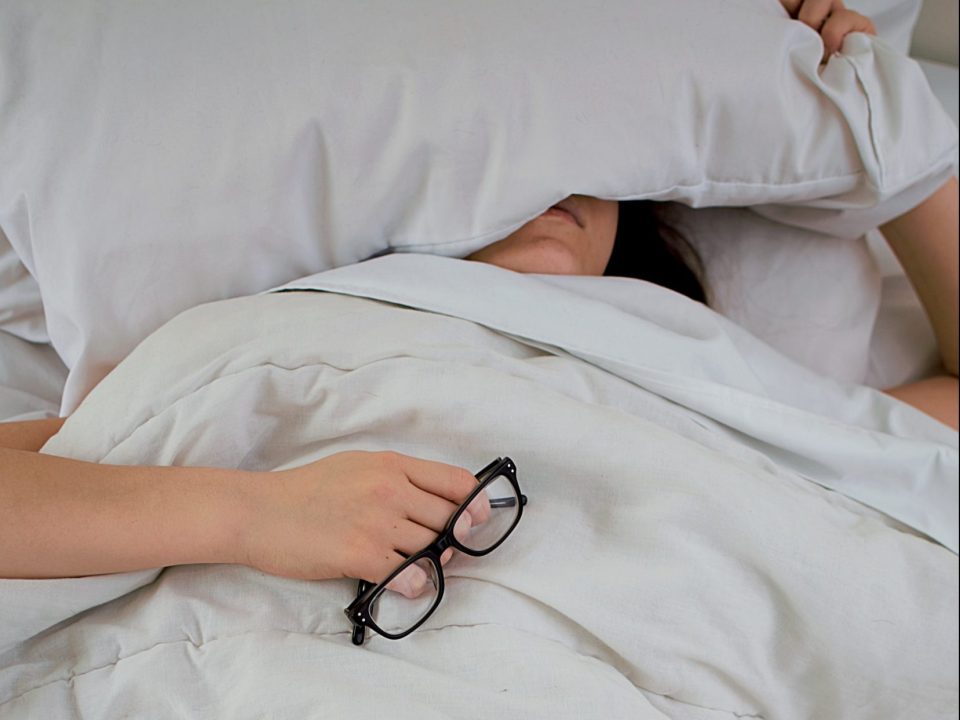
Ways to Improve Gut Health
January 25, 2022
Managing Seasonal Allergies With Functional Medicine
April 19, 2022
Did you know that sleep deprivation and weight loss aren’t the best pair? Learn how a lack of sleep can slow your weight loss journey by clicking here.
Anyone who has ever tried, fully understands that weight loss can be hard, and keeping it off can be just as difficult. It doesn’t matter if the reason behind your weight loss journey is due to health-related concerns, or if you’ve decided to take on this journey for completely personal reasons, ensuring success means considering all the factors. One major hurdle that is oftentimes overlooked comes in the form of sleep deprivation and weight loss.
While it doesn’t seem like getting a little bit less sleep would stand in the way of successful weight loss, studies have shown that sleep duration of less than 5 hours, compared with sleeping 7–8 hours, increased the likelihood of developing obesity by 40%. As with many facets of our health, a good night’s sleep is imperative to our body’s functionality, and overall well being. But why is sleep so important to our weight loss journey, and what impact does sleep deprivation have on losing weight?
The Complicated Link Between Sleep Deprivation and Weight Loss
While we sleep, our bodies are hard at work; repairing damaged cells, flushing out toxins and waste, and yes, our bodies are still burning calories even while we sleep. While there is not yet a verified singular cause as to why a lack of sleep might lead to obesity or keep us from taking off those extra pounds, there are multiple studies currently taking place to help the medical world better understand this complicated parallel.
Many in the scientific field believe that not only does less sleep contribute to metabolic dysregulation, but ongoing studies are looking to verify that sleep deprivation also contributes to overeating. Other studies have found that a lack of sleep also impacts the neurotransmitters responsible for perceived appetite, and even others have identified that sleep deprivation affects food cravings and desire, causing individuals to crave higher calorie foods and carbohydrates.
While many studies have not completely identified the impact of sleep deprivation on weight loss, the correlation between the two is well observed.
How to Get Better Sleep, and Why It May Help With Losing Weight
We’ve discussed in the past some great tips to help you get better, more restful sleep. Good quality sleep impacts not just our weight, but our overall well being. Even if you’re not attempting to shed a few unwanted pounds (or keep them off!), sleep plays an integral role in our body’s ability to metabolize and function each and every day. Below we’ve outlined a few of the many reasons why getting a good night’s sleep can assist you in your weight loss goals.

Sleep and weight loss sometimes play a complicated dance. The list of benefits of a good night’s sleep can have on our wellbeing is a long one, but having the energy to be physically active is one of the many important ones!
- Stress relief – Stress impacts your metabolism and our gut health, and it can obviously play a large role in our mental health. Getting a good night’s rest can help reduce stress.
- Helps prevent late-night snacking – Let’s face it, staying up late means we’re awake longer, which sometimes means heading to the fridge right before our heads hit the pillow. That, combined with a slower metabolism during hours we’re asleep can make for a hefty setback in our weight loss goals.
- More energy for physical activity – It can be hard to motivate ourselves to head to the gym on a well-rested day, but the benefits of a good night’s sleep can definitely help give us a boost. These two factors are a bit symbiotic, as studies have shown that a lack of sleep decreases physical activity, and less physical activity can lead to a lesser quality of sleep!
- It could help shrink fat cells – When we sleep, our bodies metabolize the fat stored in our fat cells. Without enough good quality sleep, these cells can’t function properly. In addition, when our fat cells aren’t working at their highest efficiency, the result can be an increased risk for diabetes.
Of course, all of these benefits may be different from person to person – and there are many other reasons that getting better sleep can help with losing weight. If you happen to be struggling with losing weightnb or keeping weight off after a weight loss journey, please give us a call here at the Integrated Wellness Clinic of Philadelphia We’d love to speak with you and help you find healthy solutions while supporting you on your journey to better health and wellness.



